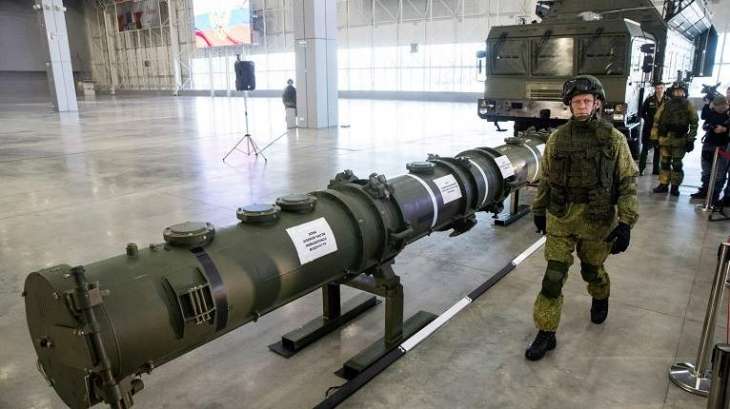If the United States and NATO are ready to discuss the details of Russia's proposal to prohibit deploying to Europe missiles formerly banned under the Intermediate-Range Nuclear Forces (INF) Treaty, it should be still possible to reach an agreement, Pavel Podvig, a senior researcher at the United Nations Institute for Disarmament Research (UNIDIR), told Sputnik
WASHINGTON (Pakistan Point News / Sputnik - 17th June, 2021) If the United States and NATO are ready to discuss the details of Russia's proposal to prohibit deploying to Europe missiles formerly banned under the Intermediate-Range Nuclear Forces (INF) Treaty, it should be still possible to reach an agreement, Pavel Podvig, a senior researcher at the United Nations Institute for Disarmament Research (UNIDIR), told Sputnik.
At their Wednesday summit in Geneva, presidents Vladimir Putin and Joe Biden agreed to launch strategic stability consultations and adopted a joint statement reaffirming commitment to the 1985 Gorbachev-Reagan formula that a nuclear war cannot be won.
"In principle, it is possible that as part of their dialogue the US and Russia will discuss the situation that was created by the end of the INF treaty," Podvig said when asked whether the agreement means that Russia and the US may return to discussion of the INF.
He stressed that the treaty must be addressed and there were several ways of doing so.
"For example, there is the Russian proposal to ban deployment of INF range missiles. The United States and NATO have not accepted it, but if they are open to a discussion of details, it should still be possible to get to an agreement," he said.
In October 2020, Putin announced a new initiative to resolve the situation with growing tensions in Europe after US withdrawal from the INF Treaty. In particular, he said that Moscow was ready, on its own free will, not to deploy 9M729 missiles on the European part of the country, provided there are reciprocal steps from NATO. The alliance has recently said that while it does not accept the proposal, it "remain open to meaningful arms control discussions and dialogue on reciprocal transparency and confidence-building measures."
Speaking on the summit outcome, Podvig said that it is still too early to say whether it will lead to a new arms control agreement, yet the process itself may contribute to better relations between the two nations.
"The reaffirmation of the principle that a nuclear war cannot be won and must never be fought is largely symbolic, but it is an important step that should not be underestimated," he concluded.
A number of analysts have compared the recent summit between Putin and Biden to the 1985 meeting between Soviet leader Mikhail Gorbachev and US President Ronald Reagan. At that time, the leaders did not sign any treaties but agreed on a number of major issues regarding strategic stability and security. Two years later, in 1987 in Washington, Gorbachev and Reagan signed the historic INF Treaty which went into effect on June 1, 1988. Nearly 30 years later, in 2019, former US President Donald Trump formally pulled out of the deal, followed by Russia.




